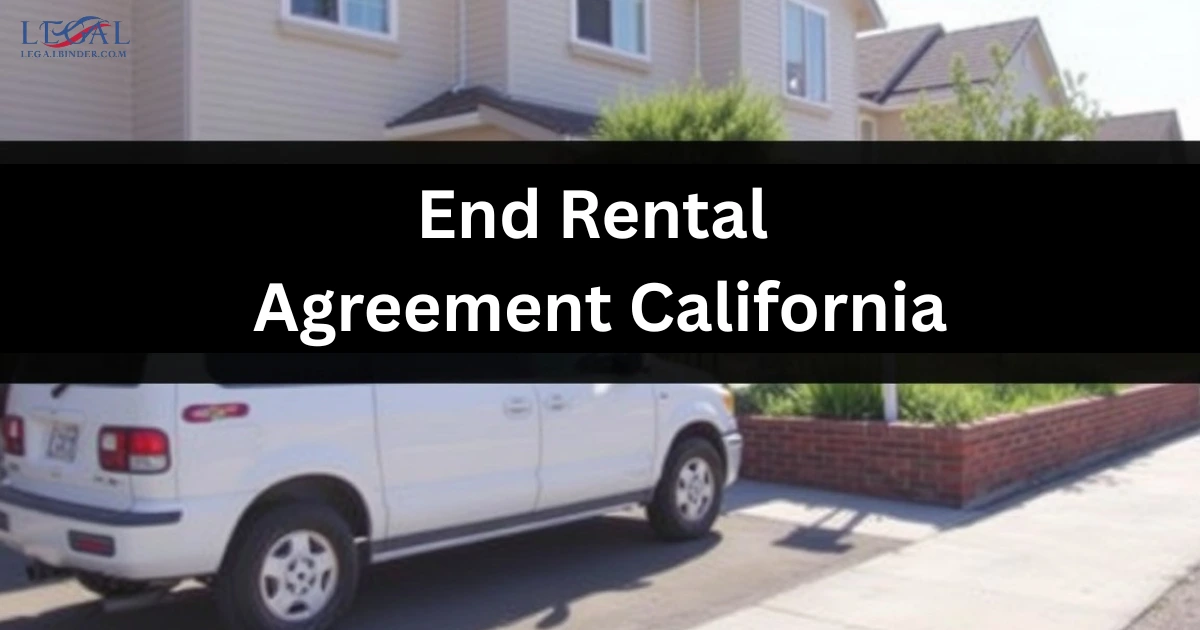Physical Address
304 North Cardinal St.
Dorchester Center, MA 02124
Physical Address
304 North Cardinal St.
Dorchester Center, MA 02124

Deciding to end rental agreement California is never easy. Maybe your job is taking you to a new city, your family is growing and you need more space, or financial pressures are making the current lease unsustainable. Whatever the reason, the thought of ending a lease can feel overwhelming. You might worry about losing your deposit, paying hefty penalties, or even facing legal action. The good news is, California law gives you clear paths to end a rental agreement legally and fairly, protecting both your rights and your peace of mind.

At USALegalBinder.com, we break down complex rental laws into straightforward guides that empower you to take the right steps without confusion. In this article, you’ll learn how to legally end your California rental agreement in 2025 while minimizing risks and ensuring a smooth transition.
Ending a rental agreement is a legal process, not just a personal choice. California law recognizes that tenants may need to leave early, but it also protects landlords from sudden losses. That’s why notice periods, lease terms, and legal exceptions exist. By understanding these, you avoid penalties and unnecessary disputes.
If you’re on a month-to-month rental, California law requires written notice. According to the California Department of Consumer Affairs:
If you signed a year-long lease but need to leave early, you can’t just walk away. However, California requires landlords to “mitigate damages.” This means they must make reasonable efforts to re-rent the unit instead of charging you the entire remaining rent.
California’s “implied warranty of habitability” means your landlord must maintain livable conditions. If serious health or safety problems (like mold, lack of heat, or pest infestation) aren’t repaired, you may legally end the rental agreement without penalties.
California law protects tenants who are victims of domestic violence, stalking, or sexual assault. With proper documentation, you can legally terminate your lease without penalty to ensure safety.
Under the federal Servicemembers Civil Relief Act (SCRA), active-duty service members who receive deployment orders may break a lease legally.
Notice must be in writing. Include:
Keep a copy for your records and, if possible, deliver it by certified mail. This creates a paper trail in case of disputes.
Landlords must return your security deposit within 21 days of moving out. They can only deduct for:
If deductions are made, they must provide an itemized statement with receipts. Failure to comply may entitle you to damages up to twice the deposit amount.
If your landlord refuses to honor your legal right to end a rental agreement, you may:

Yes, if you have legal grounds such as habitability issues, military service, or domestic violence protections.
30 days if under one year, 60 days if one year or longer.
You can demand an itemized statement and take legal action if the law is not followed.
Yes, if your lease permits subleasing, this can reduce financial penalties.
Knowing how to legally end a rental agreement in California gives you control, peace of mind, and financial protection. Whether you’re moving for personal reasons, safety concerns, or military duty, California law offers clear procedures to follow. By giving proper notice, documenting your move-out, and understanding your rights, you can close this chapter of your rental experience smoothly.
For more detailed legal resources, visit USALegalBinder.com. Empower yourself with knowledge and take the right steps toward a rental transition that feels secure and positive.